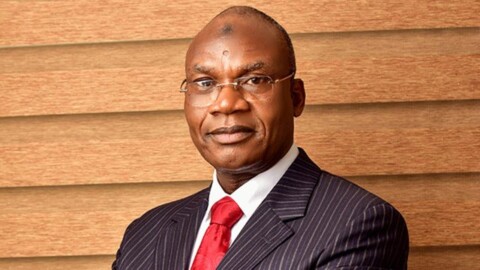The Managing Director of the Nigerian Education Loan Fund (NELFund), Akintunde Sawyerr, has revealed that more than 90,000 students have received support from the NELFund over the past six months. This was shared during an oversight visit by the Senate Committee on Tertiary Institutions and TETFund, led by Senator Muntari Dandutse, to NELFund’s headquarters in Abuja.
Mr. Sawyerr disclosed that both tuition fees and stipends for over 90,000 students have been covered by the fund. He mentioned, “300,000 students have been deemed eligible for the loans. The gap between those qualified and those who have received the loan is due to a thorough review process aimed at ensuring that funds are only given to deserving recipients.”
Out of the N96 billion allocated for the loan program, approximately N11 billion has already been disbursed to students nationwide. Mr. Sawyerr clarified, “The N96 billion is the total commitment for the loan, not the amount disbursed. So far, we have disbursed just under N11 billion. The remaining funds will be released over the coming weeks until the full amount is reached.”
He elaborated that the education loan is divided into two types: the Institutional Loan and the Upkeep Loan. Students do not need to apply separately for these loans. “The primary loan that grants access to education is the Institutional Loan. Only after receiving this can students apply for the Upkeep Loan, as it is linked to being in school,” he said.
Mr. Sawyerr highlighted that NELFund’s mission aligns with President Bola Tinubu’s Renewed Hope agenda, aiming to positively impact students’ lives. He also provided a breakdown of how the funds have been distributed across Nigeria’s geo-political zones: North-central students have received 12% of the funds, North-east 26%, North-west 38%, South-east 10%, South-south 4%, and South-west 13%. “These numbers have shown significant growth, and we are tracking them monthly,” he added.
Discussing the loan repayment terms, Mr. Sawyerr assured that they have been structured to be manageable for recipients. “This is not a profit-oriented initiative for the Fund. It is designed to benefit the nation by making repayment terms flexible, so students are not discouraged from pursuing higher education,” he explained. Loan repayment begins two years after the mandatory National Youth Service Corps (NYSC), provided the individual has secured employment. Employers are responsible for deducting repayments from salaries.
Senator Muntari Dandutse, Chairman of the Senate Committee, expressed satisfaction with NELFund’s progress. “We are here to assess the achievements of NELFund, which started just six months ago. It is commendable that over 90,000 students have already benefited, despite various challenges,” he noted. The senator emphasized the importance of continued investment in the fund and revealed plans for liaison offices in each geo-political zone to coordinate with universities, polytechnics, and federal colleges of education to boost operational efficiency.
Senator Diket Plang, a committee member representing Plateau State, praised the government’s initiative through NELFund, describing it as transformative for students. He suggested that additional strategies be employed to encourage more students to apply for the loans. “Each state has a scholarship board, and the heads of public tertiary institutions should inform students about the benefits of the loan program. This will increase awareness and participation,” Sen. Plang said.
The Senate remains committed to fostering improvements in Nigeria’s tertiary education system, supporting projects that enhance infrastructure, promote research, and aid staff development. The upper legislative chamber aims to build a responsive and impactful education sector that benefits future generations.





